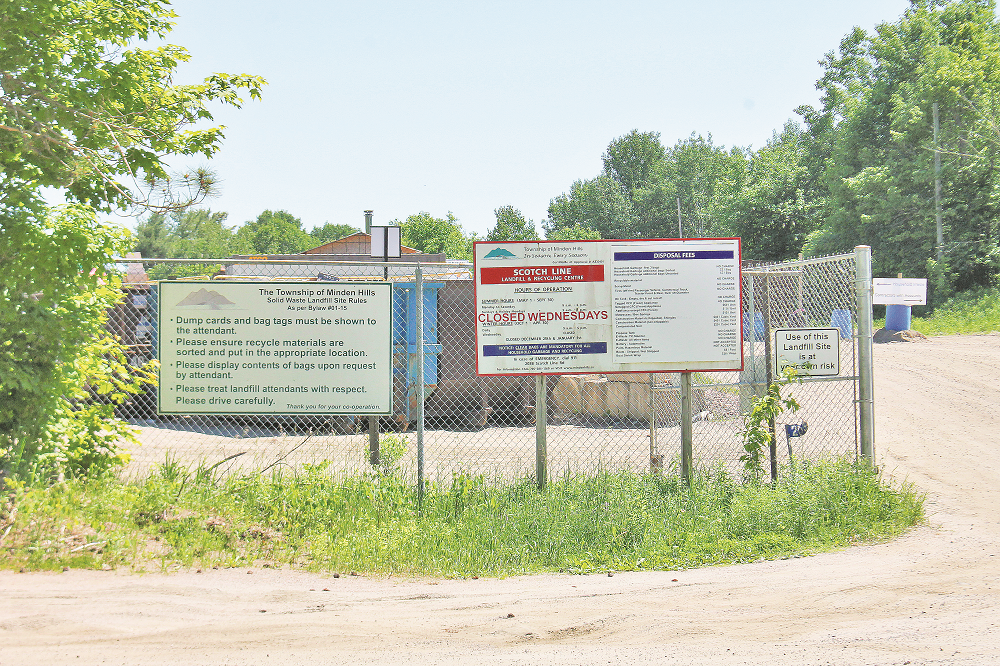Minden Hills Coun. Jean Neville said she wants the County’s climate change coordinator to look into the possibility of getting a biodigester.
She made the comment after County climate change coordinator Korey McKay outlined her plan for the township to reduce its Greenhouse Gas (GHG) emissions.
McKay’s report outlined a number of mitigation measures, including electric vehicles, reducing the garbage bag limit, and installing scales at the Scotch Line landfill.
She also revisited how 81 per cent of the municipality’s emissions come from landfills. She spoke of exploring the potential for food and yard waste diversion; completing a waste composition study at the landfill sites and implementing a backyard composting program.
Neville replied, “You said that you’re going to determine how much organic waste was at the landfill? You already know that 81 per cent of our emissions is coming from the landfill and so I’m thinking that is organic waste. I think that time and money and effort should be put into investigating a biodigester of some sort … even if it was County-owned or purchased, I think that would be a lot more value.”
A biodigester is like a mechanical stomach. It is fed with organic material, which is broken down by micro-organisms in an oxygen-free environment to produce a renewable energy called biogas and other material that is mainly used as fertilizer.
McKay said she had noted Neville’s suggestion for the implementation stage of the project. Coun. Pam Sayne, who is on the Minden Hills climate change committee, thanked the County for hiring McKay. She also thanked the many community volunteers who have been, and will continue to, work on the portfolio.
“We know that our targets that we need to meet are certainly not where we want them to be in this report but I think it’s open to improving,” she said. However, “I’m excited about this direction. I think there’s options to even do better. But it’s on the table and we’re moving in the right direction.”
McKay said the township’s corporate emissions come largely from its landfills (81 per cent), followed by fleet (12 per cent) and buildings (seven per cent). The GHG reduction targets are to cut corporate emissions by 20 per cent; 10 per cent for fleet and 10 per cent for waste from the 2018 baseline by 2030. Coun.
Bob Carter said he’d like to see more of a focus on diversion and public education.
“From my perspective, you’re not going to change the output without changing the input. So, reducing garbage bags to two per week is going to probably lead to more garbage on our roads and streets. Without doing something to help the public to reduce, educate them and reduce the amount of garbage, it doesn’t help just to do it at the end,” he said.
McKay said she will support each municipality to implement the suggested actions. She said a joint municipal climate change working group should be created for county-wide collaboration and ongoing input and support for the adoption of practices and policies designed to reduce GHG emissions.
As for monitoring, she said she will complete corporate GHG inventories annually and report to councils to track progress.
“The plan is a living document that should be updated when major changes occur or at a minimum of every three years,” she said.





